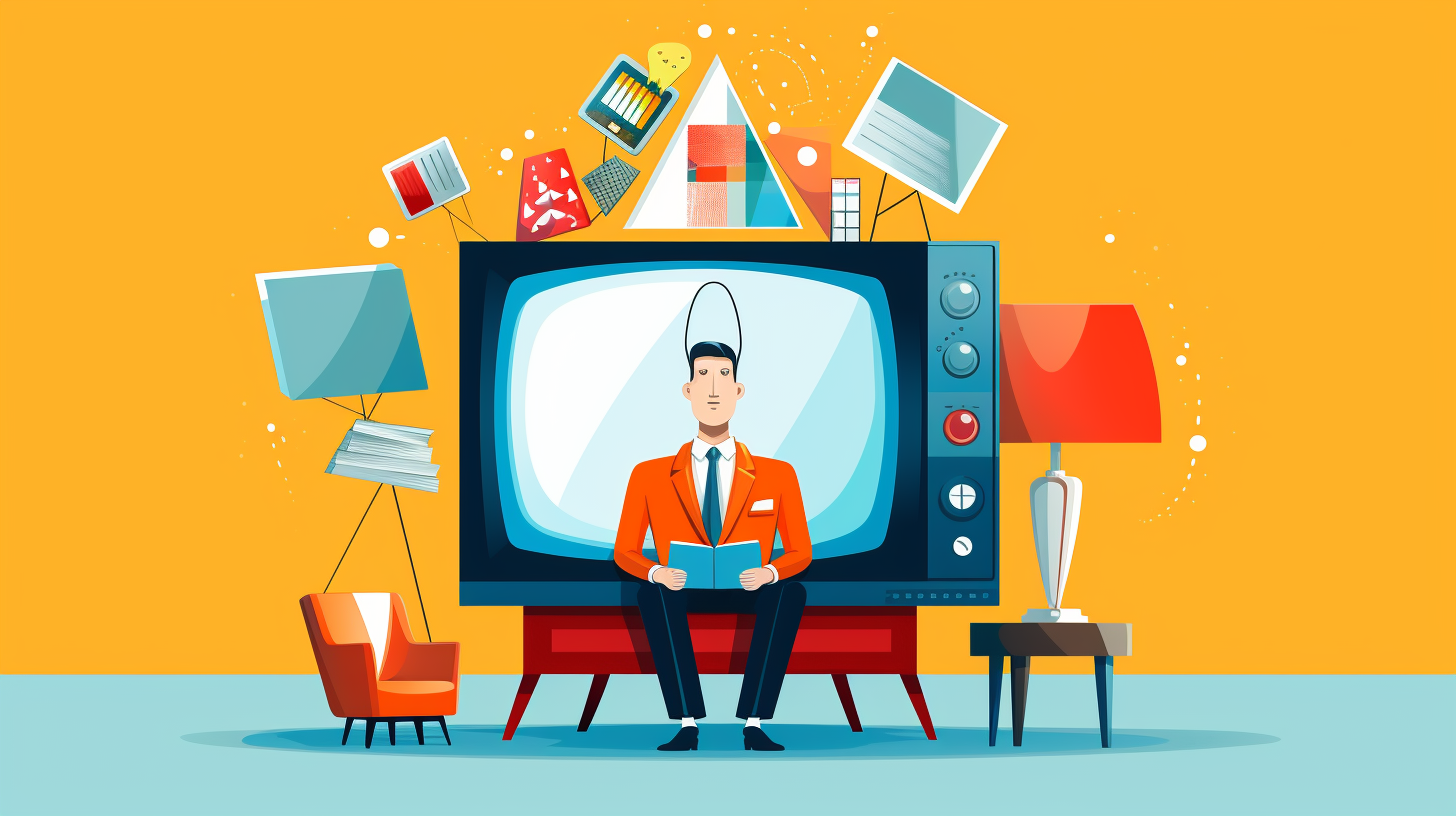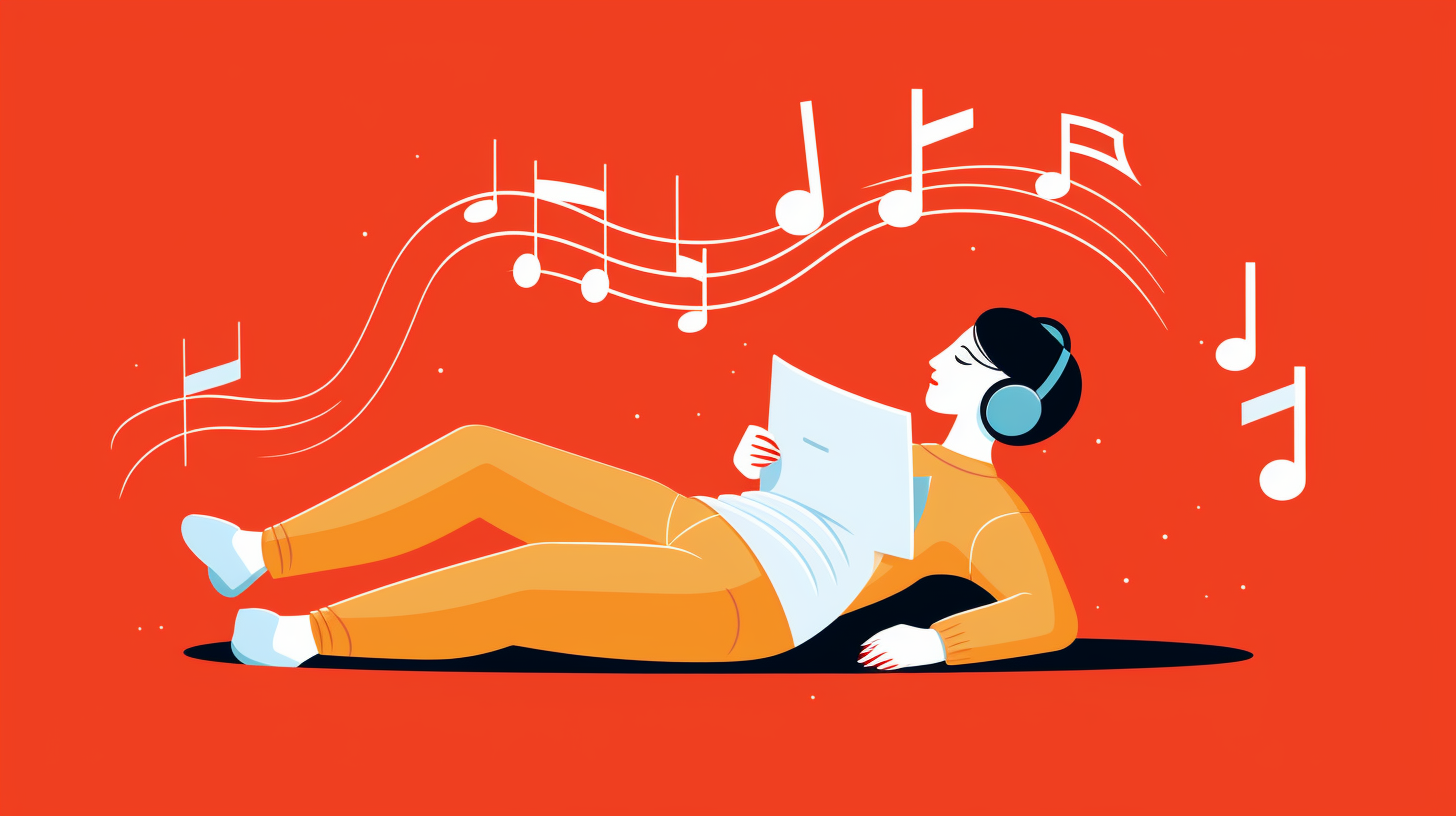In the digital age, choosing between “reading vs watching TV” has become a common dilemma for leisure and entertainment. It’s a choice that’s been around since the first TV flickered to life. In this text, we’ll investigate why you might want to pick up a book instead of the remote.
You’ll discover the undeniable benefits of reading, from enhancing your brainpower to reducing stress. But let’s be fair—watching TV has its perks, too, and we’ll explore those. We’ll also tackle the less talked-about drawbacks of each, ensuring you’ve got all the facts to make the best choice for your leisure time.
Benefits of Reading
As you navigate the seemingly endless debate concerning reading vs watching TV, certain truths stand out. Let’s investigate why reading holds a distinctive advantage over television, focusing on crucial aspects such as expanding knowledge, improving vocabulary, and enhancing critical thinking.
Expanding Knowledge
One distinct edge books have the depth and breadth of knowledge they provide. Unlike TV series that often gloss over details, reading forces you to engage with content, fostering a deeper understanding of complex concepts and narratives. Let’s break down why reading is better than TV when it comes to learning:
- You control the pace; you can slow down to digest or speed up when you grasp the content.
- Exposure to a multitude of topics and genres that you might not encounter on television.
- Retention of information is typically enhanced when reading, as it requires active participation.
Here’s a table displaying the correlation between reading and knowledge expansion:
| Reading Time per Week | Percentage of Increased Life Satisfaction |
| — | — |
| 30 minutes | 20% |
Improving Vocabulary
Your word bank expands significantly when you’re an avid reader. Books often use a richer and more varied language than the scripted dialogue on television, making them superior in building a robust vocabulary. Consider the following:
- Regular readers are exposed to thousands more phrases and expressions than TV viewers.
- Reading engages your brain in recognizing and understanding new words in context, naturally improving your language skills.
It’s not just about knowing fancy words; it’s about sharpening your ability to communicate effectively in all areas of life.
Enhancing Critical Thinking
Why are books better than TV when it comes to stimulating your mind? Reading is an exercise in critical thinking, requiring you to make connections, understand implications, and evaluate arguments. Unlike the passive consumption of TV, reading offers you scenarios where you must:
- Read between the lines, developing deductive reasoning as you predict plots and character development.
- Challenge and reflect on the material that fortifies your analytical abilities.
Reading’s superiority is not just an opinion; it’s rooted in cognitive studies. Through this mode of learning, your brain is consistently trained to process and scrutinize the information in ways TV can’t match.
The choice between book vs television often comes down to these core elements. Regarding fostering an environment conducive to learning, critical analysis, and extensive vocabulary, reading is the unmatched champion.
Benefits of Watching TV
Entertainment
TV excels at providing immediate entertainment. Unlike reading, where your imagination needs to fill the gaps, TV does the heavy lifting. You’re guaranteed a captivating experience with little effort on your part. Quality programs instantly deliver stories, humor, drama, and thrills, perfect for unwinding after a long day.
Visual Learning
The power of visuals in learning cannot be overstated, and TV shines here. Documentaries and educational programs dynamically present information, making complex topics accessible and memorable. You absorb details with less strain as visuals pair with audio, reinforcing learning and catering to those who prefer not to engage with text.
Connecting with Popular Culture
TV is a gateway to popular culture. It keeps you in the loop with trending shows, news, and events. Understanding references and staying connected is easier, as TV shapes much of the global conversation. Engaging with television content allows you to participate in discussions, ensuring you don’t feel left out in a world where book vs television is a prevalent topic.
Drawbacks of Reading
Time-Consuming
Integrating reading into your tight schedule may pose challenges when juggling work, family, or studies. Unlike the instantaneous nature of television, reading demands more of your time. Books vs. TV often boils down to the commitment required—while TV can fill a brief pause in your day with entertainment, a book asks for more extended periods of uninterrupted focus. Picking up where you left off in a novel or digesting complex material can’t always be rushed. Even the most passionate reader must admit that reading vs watching TV becomes a question of time investment.
Limited Visual Experience
You might find that reading is better than watching TV for stimulating the imagination, but it cannot compete with the vibrant visuals television offers. In the book vs television debate, it’s clear that TV provides a rich visual landscape that books leave to the reader’s mind. While reading, you must independently fabricate the scenery and characters’ appearances, which can sometimes leave you wanting more if your creativity wanes. An audiobook strikes a balance—your imagination conjures up images, while the nuances in a narrator’s voice enhance the experience beyond the page.
Possible Eye Strain
A downside that tips the scales in the books vs. television discussion is the physical toll that reading can take on your eyes. Luminous screens and bright pages can lead to eye fatigue, especially if you’re consuming text for extended periods. In contrast, audiobooks offer a respite for your eyes, allowing you to indulge in stories and knowledge without the strain. So, while it’s debated why reading is better than TV, it’s worth considering how your preferred medium affects your eye health. With audiobooks, you can enjoy the richness of a well-told story and the depth of information that books offer without risking discomfort.
Drawbacks of Watching TV
Sedentary Lifestyle
As you settle in front of the TV, you quickly forget the hours slipping by. Watching TV typically involves prolonged sitting, which can lead to a sedentary lifestyle. Multiple studies link excessive screen time with obesity and related health problems. When you opt for TV over activities like reading or listening to audiobooks, you miss out on opportunities to engage in a more dynamic lifestyle. Instead of getting wrapped up in the latest series, consider an audiobook; it can accompany you on walks, helping you stay active.
Passive Consumption of Content
Consuming TV content is a passive activity. Visual and auditory information is delivered directly to you, requiring minimal cognitive engagement. When you watch TV, you’re handed everything on a screen—leaving no room for imagination. In contrast, reading or listening to an audiobook is an active process that demands mental participation and strengthens brain function. This reinforces why reading is better for cognitive engagement and why audiobooks can be a superior choice as they enact vivid storytelling that ignites the imagination without the passive drawback of TV.
Distraction and Reduced Focus
The instant gratification provided by TV can introduce distraction and reduce focus. With limitless choices at your fingertips, it becomes all too easy to switch from one program to the next without giving full attention to either. This habit can bleed into other areas of life, impacting your ability to concentrate on the tasks. On the other hand, when you’re engaged in a book, whether reading or listening, your focus is refined, promoting a greater depth of understanding and retention of information. Books’ clear structure and narrative help maintain focus, outlining why books are better than TV for developing this critical skill.
Conclusion
Deciding between grabbing a book or reaching for the remote isn’t just about entertainment—it’s about choosing the path to mental engagement and focus. You’ve seen how reading can sharpen your mind and watching TV might lead to a more sedentary lifestyle. Remember, your free time is a chance to either activate your brain or give it a rest. Balance is key. Opt for the book when you’re ready to challenge yourself, and save the screen for when you need a break. Your cognitive health is in your hands—choose wisely.
Frequently Asked Questions
Why is it better to watch than read?
Watching TV can be more accessible for people looking for quick and visual storytelling. It offers immediate visual stimulation and can be easier to remember. Meanwhile, reading encourages imagination and deep engagement with the story.
How much TV does the average person watch a day?
As of the fourth quarter of 2022, the average US adult watched approximately 294 minutes of TV per day. This number reflects a slight decrease from the daily average in 2019.
Why are books better than television?
Books are better than television in several aspects, such as enhancing cognitive skills, increasing concentration and focus, and encouraging active participation of the reader’s brain, offering a deeper cognitive engagement than television.
What are the 5 benefits of reading?
- Expanding vocabulary and comprehension.
- Strengthening the brain.
- Reducing stress.
- Helping with sleep preparation.
- Preventing cognitive decline and possibly prolonging life.
Are books more entertaining than TV?
Entertainment is subjective; however, books often offer a more immersive and personal experience. Reading allows individuals to imagine the world and characters and often provides a space for introspection, which can be more satisfying for some than watching TV.




